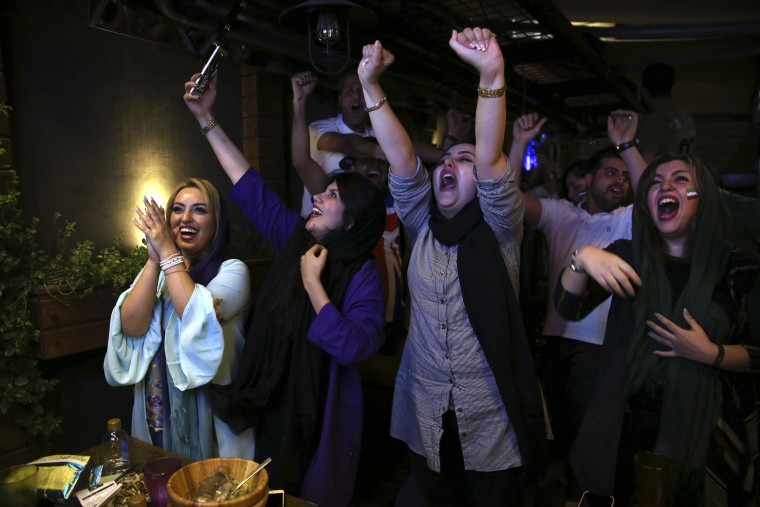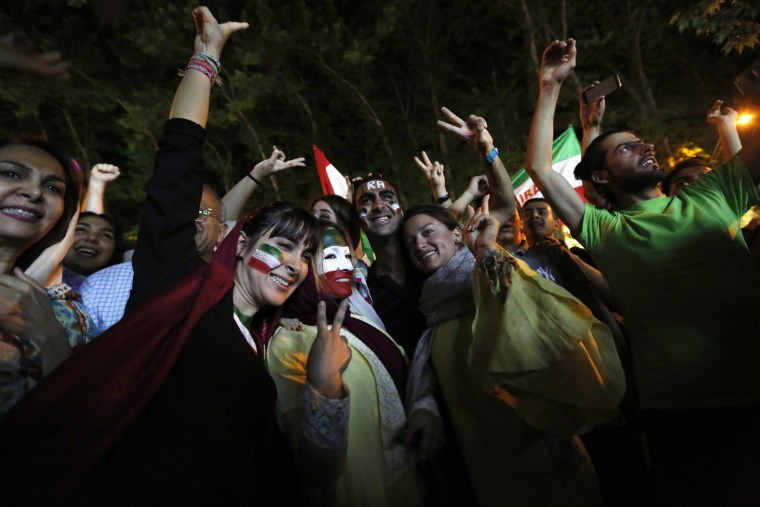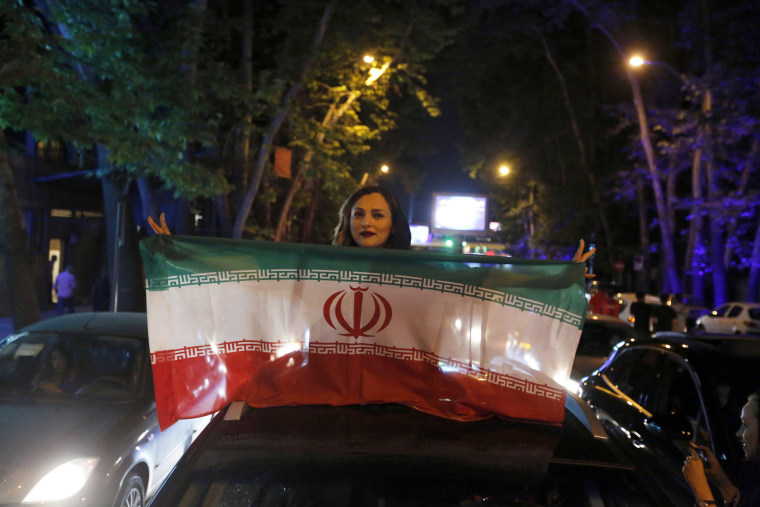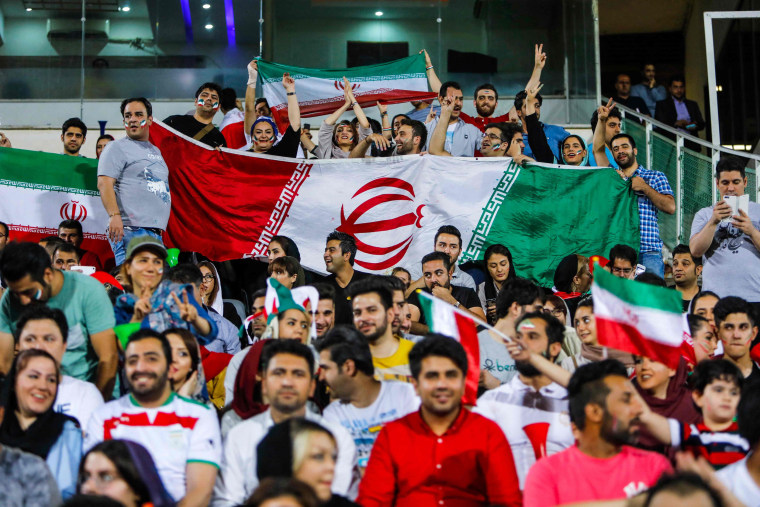As Iran’s national team faced Spain on Wednesday in Iran's second 2018 World Cup match, Iranian women entered Tehran’s largest stadium to watch a screening of the game for the first time since a year after the country’s 1979 revolution.
Tehran’s provincial council made the last-minute decision Wednesday morning to allow women to attend the screening after Iran won its first World Cup match since 1998 last week, sending Iranian men and women into the streets for hours of celebration.

Open Stadiums, a group of Iranian women who have been advocating for their right to enter sports stadiums for years, welcomed the announcement. Members were later met by local police upon arriving at Azadi Stadium for the screening at 10:30 p.m. Wednesday local time. Eventually they were let in prior to kickoff.
According to Iran’s state news agency, the decision to let women into the stadium applied only to Wednesday's match, although some women said they hoped that it was a first step to a change in policy.
British-Iranian student and activist Ghoncheh Ghavami, who was present for the historic event, became one of the faces of the movement after she was detained for attending a volleyball match in Tehran in 2015. She was released a year later but was barred from leaving the country for 12 months.
“It was incredible, the first time we saw the stadium there was 100,000 people present,” Ghavami said in an email to NBC News about the Iran-Spain game. “The space was great. Even after the end of the game, people continued to stay in the stadium.”
Women are still not allowed to watch most live sports matches in Iran, and Sara, 34, a member of Open Stadiums, said she did not think the council's decision would change that.
“They seemed to have played with us and the media.” Sara told NBC News, asking that only her first name be used out of fear of arrest in Iran.

Iran is currently the only country participating in the 2018 World Cup games that prohibits women from entering stadiums, according to the Center for Human Rights in Iran.
Saudi Arabia lifted a similar ban earlier this year as a part of Crown Prince Mohammad bin Salman's relaxation on social restrictions, allowing women to attend soccer matches at home.
The stadium put 10,000 tickets on sale for the screening and they sold out immediately, according to Agence France-Presse. Women were allowed to watch the match from the family section of stadiums as well as in parks and other public arenas around the country.
In the U.S., the Center for Human Rights in Iran has been leading the fight for women to be able to watch and attend soccer and sports games with their male peers.
"It's a positive development that women were finally let into Tehran's Azadi stadium today after protests by women and men outside the arena, but it remains to be seen whether the discriminatory ban has been permanently lifted,” Hadi Ghaemi, executive director of the center, said in a statement to NBC News. "Iranian women have been risking arrest by peacefully protesting this ban for years and have shown they won't back down until they are treated as equals."

Iranian clerics say women must be kept from entering sports arenas because they need protection from the masculine environment at those venues. Last year, authorities overturned a law banning women from attending volleyball tournaments, but women are still banned from tournaments of other male-dominated sports, like soccer, wrestling and basketball.
Iran lost the match to Spain, 0-1. But that hardly seemed to matter to Iranian women.
“These doors finally opened. The image of women's happiness and encouragement has been widely disseminated, and has been broken down into cyberspace,” Ghavami said. “It's hard to close the doors of the stadium on women now.”
